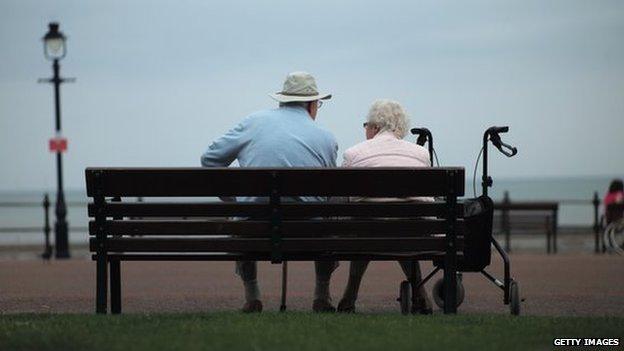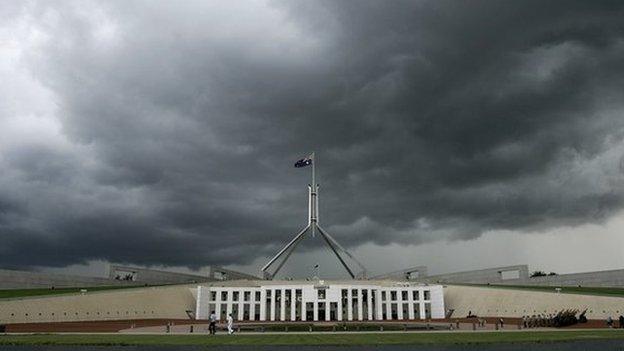Australian budget will overhaul aged pension
- Published

Changes to the pension will make life easier for those on a modest nest egg
The Australian government will give more money to pensioners living on modest incomes in next week's budget, it has announced.
However, wealthier retirees who own a home and other assets will lose some of their government benefits.
The government said the changes would help the people who most need financial assistance.
The government is looking for ways to cut public spending to offset a sharp fall in revenue.
The 12 May budget is expected to show a massive blow-out in the government's deficit mainly due to lower royalty payments from commodities such as iron ore.
Social Services Minister Scott Morrison said the changes would save the government about A$2.4bn ($2bn; £1.3bn) a year.
"We want the welfare system to be focused on those in greatest need and in the pension system, that's those with low or modest assets," Mr Morrison told the ABC on Thursday.
'Definitely fairer'
The government estimates that about 172,000 pensioners would be A$30 better off a fortnight under the changes.
But about 91,000 retirees who own their own homes and have other assets worth more than A$823,000 would no longer get a part-pension from the government.
The changes were "definitely fairer" than the government's previous proposal to change pension indexation, said Combined Pensioners and Superannuants' Association (CPSA) spokesperson Amelia Christie.
"Tightening the pension asset test makes more sense both from a financial and fairness perspective if you compare it with the 2014 budget proposal to cut pension indexation and reduce the value of the pension over time," said Ms Christie.
The government has now scrapped last year's unpopular policy of linking pensions to inflation rather than average wages.
Seniors' lobby groups said that would have left pensioners worse off because inflation was rising more slowly than average wages.
"Yet it should be noted that this policy still goes against the government's pre-election promise to not touch pensions," said Ms Christie.
"A more equitable move would be for the government to tighten superannuation [private pension] tax concessions, which overwhelmingly benefit high-income people ... This lost revenue should be tackled before pensioners face a hit to their incomes," she said.
- Published4 May 2015

- Published13 April 2015
